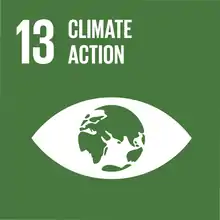
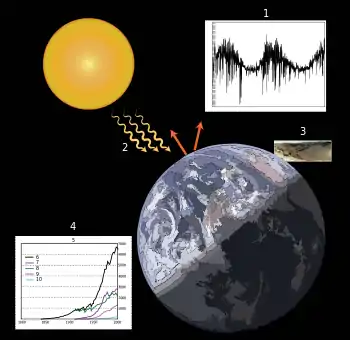
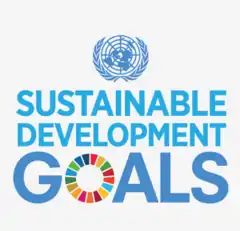

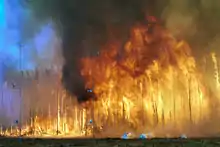
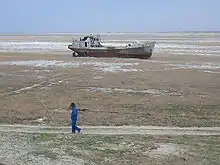
.jpg.webp)
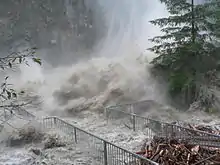
Introduction to Learner based Activities
Aim of the project:
This learning project aims to support participants in their response to climate change[2] through the collective identification, remixing, creation and use of learning resources on this topic.
Outcomes for the Learner-based Activiities
Please add any outcomes you would like this project to achieve. Also use the talk page to discuss these outcomes.
- Find participants for the project
- Discuss and select approaches to organise and implement the project
- Work collectively to set the aims and objectives of the project
- Negotiate a provisional outline of how these objective might be achieved
- Collectively identify, locate, remix, edit and create learning activities and resources that will fulfil participants individual objectives.
- Participate in the learning activities
- Reflect on and evaluate these learning experiences
- Refine the process and repeat
Learners Activity Page
- Learners Activity
- Analyse the Sustainable Development Goals and identify the contributions to Risk Management in the area of climate change.
- Analyse the generic approach describe in the Risk Management learning resource. Map risks to risk mitigation resource and analyse possible obstacles and challenges of the application risk mitigation strategies.
Processes used in this project
This section will contain details of the various processes or methods used in this project in producing the stated outcomes. At the moment this is just a random list of some possible approaches. Please add your own suggestions or links to established approaches.
Participation and ownership
The nature of wikis encourages joint ownership of all the participants. The experience of other wiki projects can be used as a guide to encouraging participation.
Learning methods
Webquests
A webquest is an enquiry based learning activity were participants use the Internet to locate the resources they need to resolve the problem posed by the webquest. webquest.org
Reflective diary
This project encourages people to take a personal approach to the subject of climate change. Peoples feelings and emotions play a key part in any learning. One approach to paying attention to your feelings is to keep a reflective learning diary. In this you can record your immediate feelings about some aspect of your learning. Later you can reflect on these feelings and see how they effected your learning. If you wanted to share your reflective learning diary you could set up a page on your Wikiversity home page and add entries there. Alternatively you could setup a reflective learning blog and which can be either private or public.
Learning resources
- United Nations - Climate Change e-Learning Portal
- Explore the Wikipedia content about Climate Change
- Explain the need for Risk Literacy about climate change and derive the purpose of the impact in the future.
- Try to identify how many people will be affected by the rise of sea level
- loss of agricultural areas,
- urban area (try to quantify the affected population)
Please add links to suitable learning resources in this section. Ideally these should be licensed under a creative commons or equivalent licence.
- Due to climate change related risks like
- rise of sea level of 3mm per year (e.g. need to relocate villages on the Fiji Islands)
- increasing number of extreme events (see Disaster Management and UN-SPIDER)
- alteration of spatial pattern of communicable disease according to spread of vectors like mosquitos (see Expert Focus Group for Space and Global Health)
- loss of value of fossile fuel investments (see Global Challenges)
Essentials
This section contains links and references to key information about climate change. Please only add items to this list that you feel are essential to understanding climate change.
Reading
- Summary of the IPCC Synthesis Report (PDF 2Mb) contains an overview of the latest IPCC report giving a state of the art overview of the science, consequences and mitigation of climate change and global warming
- The Copenhagen Diagnosis report(PDF 3.3Mb) is an update of the science in the proceeding report and includes new information published in the three years since the IPCC report
Websites
- The IPCC (Intergovernmental Panel on Climate Change) is the lead organisation for the international investigation into global warming and climate change.
- The Copenhagen Diagnosis website synthesizes the most policy-relevant climate science published since the close-off of material for the last IPCC report
- Real Climate is a blog by scientists working in climate science and an invaluable source for those who are scientifically inclined.
Introduction to the science
Short courses
- Openlearn's global warming course provides a structured introduction to the science behind the debate from the people who brought you the Open University.
- Global warming is a series of videos lectures by David Archer covering a 10-week course for non-science majors focuses on a single problem: assessing the risk of human-caused climate change.
Wikiversity projects
These are a list of existing projects on Wikiversity that relate to this project. If you find any other projects please add them. A description or summary of each project would also be useful.
International Activities
External Resources
- Google Map of Climate Change: Zoom in on examples of the assessments of the National Climate Assessment and Development Advisory Committee.
- Google Map of the Rise, Fall, and Migration of Civilization Due to Climate Change
- United Nations Climate Change e-Learning Portal
See also
References
- ↑ UN-Guidelines for Use of SDG logo and the 17 SDG icons (2019/05/10) - https://www.un.org/sustainabledevelopment/news/communications-material/
- ↑ Protocol, K. (1997). United Nations framework convention on climate change. Kyoto Protocol, Kyoto, 19.